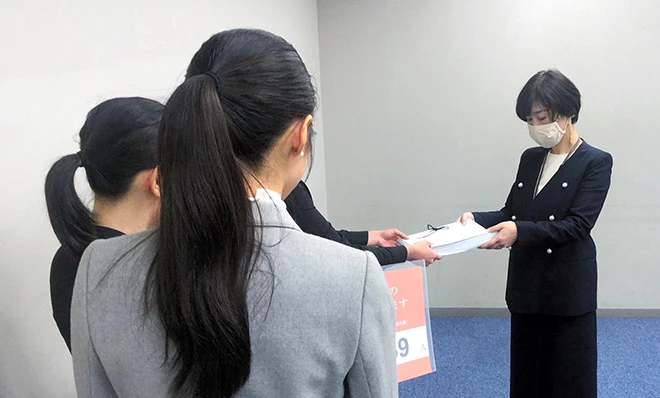Japan Weighs Finally Lifting Age Of Consent From 13
By AFP
A Japanese justice ministry panel on Friday proposed raising the country’s age of consent, currently among the world’s lowest at just 13, as part of a major overhaul of sex crime legislation.
The move to raise the age of consent to 16 is part of a package of reforms that would also clarify rape prosecution requirements and criminalise voyeurism.
The recommendations presented to the justice minister come after a series of rape acquittals that sparked outcry and will form the basis for draft amendments that could be enacted by parliament later this year.
Japan’s age of consent, the lowest among the G7 industrialised nations, has stayed unchanged since its enactment in 1907.
The age of consent is 16 in Britain and South Korea, 15 in France, and 14 in Germany and China.
Under current Japanese law, children at least 13 years old are considered capable of consent, meaning sexual activity with them is not considered statutory rape.
This has meant even teen rape survivors face the same high bars to prosecuting perpetrators that adults do.
In practice, regional ordinances banning “lewd” acts with minors are sometimes seen as effectively raising the age of consent to 18 in many parts of Japan.
But they come with significantly lighter penalties than rape charges and deem sex with children merely “unethical” conduct, “completely discounting its forced nature”, Kazuna Kanajiri, an activist fighting pornography and sexual exploitation, told AFP.
This leaves room for perpetrators to “shift blame to the victims, and argue that sex was initiated or enjoyed by the children”, said Kanajiri, who heads the Tokyo-based group PAPS and welcomes plans to raise the age of consent to 16.
– ‘Violence and intimidation’ –
Teen couples who are no more than five years apart in age would be exempt from prosecution if both partners are over 13.
Japan last revised its criminal code on sexual offences in 2017, for the first time in more than a century, but campaigners said the reforms were insufficient.
And in 2019, a string of acquittals in rape cases triggered nationwide rallies.
Among the most controversial provisions in the existing law is a requirement that prosecutors prove rape perpetrators used “violence and intimidation” to incapacitate victims.
Critics have argued that the requirement effectively blames victims for not resisting enough, and say survivors can freeze during assaults or submit to avoid further injury.
The justice ministry panel did not scrap the wording but clarified it covers drugging, catching victims off-guard and psychologically controlling them.
The clarification “isn’t meant to make it easier or harder” to secure rape convictions, but “will hopefully make court verdicts more consistent”, justice ministry official Yusuke Asanuma said.
Campaigners have welcomed the move as a step forward though it “still fails to meet international rape legislation standards”, the advocacy group Human Rights Now said in a statement.
Japan, it added, should redefine “the crime of rape as all non-consensual sexual intercourse”.
The panel also proposed a new offence covering the act of secretly filming someone for sexual purposes, and lengthening the statute of limitations for sexual violence against minors, to allow them more time to come forward.





